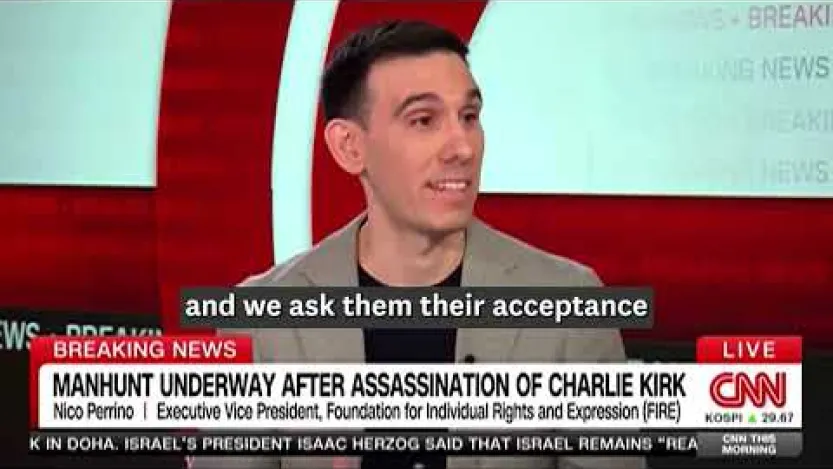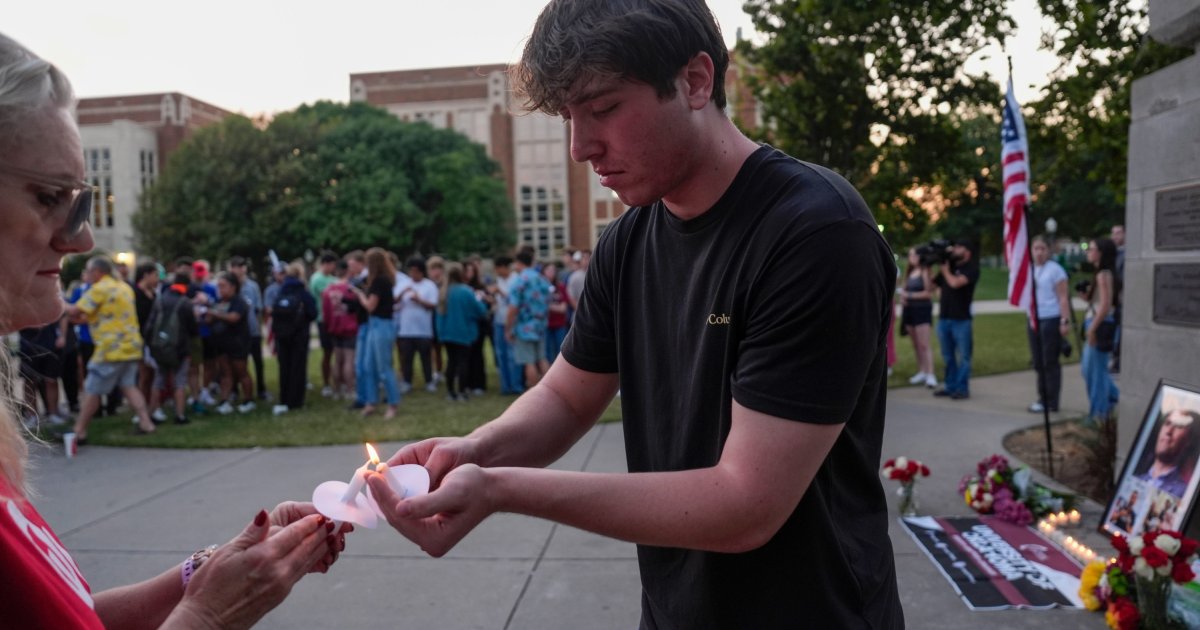We are horrified by yesterday’s assassination of Charlie Kirk on the campus of Utah Valley University. We are horrified first and foremost because two children lost their father and a wife lost her husband. And we are further horrified because all of us at FIRE have dedicated ourselves to the defense of free speech and open debate on college campuses.
At their best, America’s colleges and universities provide a unique venue to discover truth, talk across lines of difference, and develop a deeper and fuller understanding of the world. Over the years, students and student groups have invited Kirk to speak at hundreds, if not thousands, of campuses. At these events, he would share his opinions and invite others to do the same. America must be an open society where this sort of debate can take place, where we feel safe to share our ideas in the public square, not just from behind bulletproof glass and bulletproof vests.
View video

WATCH VIDEO: FIRE Executive Vice President Nico Perrino on CNN to discuss free speech on college campuses in the aftermath of the Charlie Kirk shooting at Utah Valley University.
Sigmund Freud once said civilization started the day man first cast a word instead of a stone. He was right. Words are not violence. Words are what we use instead of violence to resolve our differences. We must not lose sight of this civilization-defining distinction.
Unfortunately, since 2021, we’ve seen a steady rise in support for violence in response to speech on campus. Earlier this week, we released our finding that one in three students express some support for the use of violence to stop a campus speech. That’s up from 20 percent only three years ago. While we do not know the identity of the gunman, what happened yesterday is indicative of a broader cancer in our body politic that we must address.
Rewarding threats of violence by taxing speech or silencing speakers will only invite more threats and more violence.
But it must not be addressed with censorship.
For more than 25 years, FIRE has challenged colleges that use speculative and amorphous security rationales to justify censoring controversial speakers. Through public records requests and other means, we’ve often found these rationales serve as a pretext to shut down debate and capitulate to demands for censorship. Indeed, according to our Deplatforming Database, Kirk was the subject of at least 14 attempts to stop him from speaking on campuses since 2021. Over the years, FIRE has repeatedly written to colleges that sought to silence Kirk’s organization and supporters.
Moving forward, we can expect colleges and universities to place even greater emphasis on security ahead of controversial speakers arriving on campus. But administrators must not pass security costs along to speakers or use security concerns as pretext to cancel a speaker’s appearance. They have a moral and legal obligation to redouble their efforts to protect free speech. Rewarding threats of violence by taxing speech or silencing speakers will only invite more threats and more violence.
Yesterday, an assassin’s veto silenced Charlie Kirk, just as it silenced the journalists and cartoonists at Charlie Hebdo a decade ago, and just as it attempted to silence Salman Rushdie in 2022. But we cannot let the censors win. We cannot let violence prevail. We can and must come together in defense of our rights to be who we are and to speak our minds.

